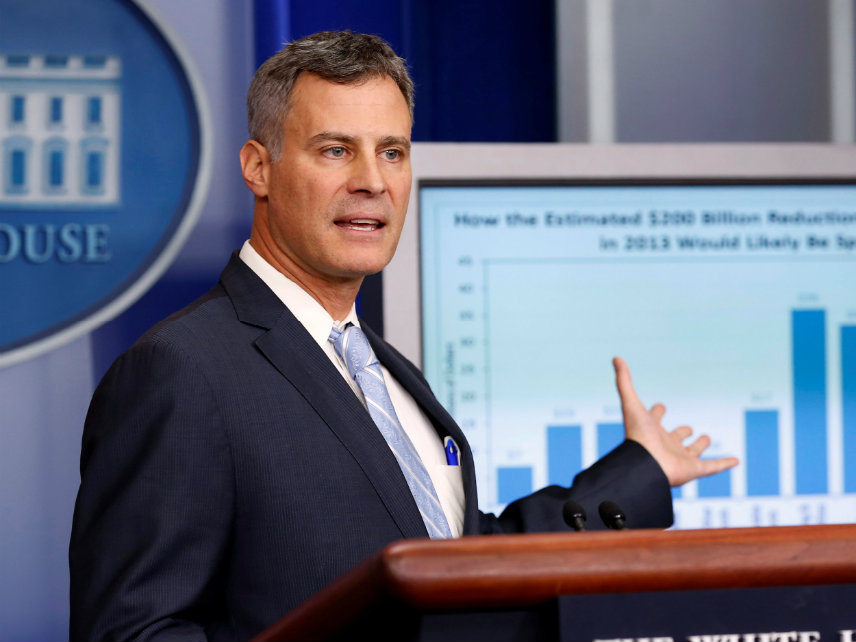RIP Economist Alan Krueger, Whose Work Spurred Calls for Occupational Licensing Reform
Krueger's work included highlighting the breadth of licensing in American labor markers, and the economic costs of mandatory government permission slips.

Alan B. Krueger, who died on March 16 at age 58, was a highly regarded economist best known for his empirical research into the consequences of government policies on labor markets—including research that helped identify occupational licensing laws as a barrier to employment and spurred much of the ongoing effort at reforming those state-level laws.
His career included stints as an advisor to two presidential administrations, but Krueger also conducted a wide range of research into everything from the consequences of minimum wage laws to the economics of rock 'n' roll concerts—the subject of his final book, due to be released in June.
Among many important contributions, his work on licensing stands out. Without Krueger, occupational licensing reform would not be on the radar today, says Morris Kleiner, a labor economist at the University of Minnesota.
During a decades-long personal and professional relationship, Kleiner and Krueger co-authored three papers together. The first, which was published in 2010 in the British Journal of Industrial Relations, helped define the scope of licensing laws in America by using survey data to show that nearly 30 percent of American workers were required to have government-issused licenses to work. Later papers exploring the effect of licensing on workers' wages, hours, and mobility helped spur reform efforts at the state and federal level.
Research that Krueger started at Princeton University's Survey Research Center—where he added occupational licensing questions to Gallup polls—continued when he moved into a gig as chief economist at the U.S. Treasury during the Obama administration (he previously served in the Clinton administration as chief economist in the Department of Labor). The information gleaned from those government surveys have helped economists and policymakers better understand how licensing raises wages for workers lucky or privileged enough to be licensed while acting as a barrier to employment for others.
Krueger's work played an instrumental role in getting the Obama administration's Council of Economic Advisors to study occupational licensing and, in 2015, to issue a report calling for states to ease their licensing rules for many professions.
"He helped move occupational licensing from a backburner issue to very much being a discussion in mainstream economics," Kleiner told Reason. "Absent his ability to get those surveys and analyze the numbers, these things just would not have happened."
On the political left, Krueger's work is probably most commonly associated with a 1994 paper that examined the empirical effects of a minimum wage increase in New Jersey by comparing employment at fast food restaurants in the state with those in Pennsylvania, where there had been no change to the minimum wage. The study found no significant impact caused by the higher minimum wage in New Jersey, challenging the prevailing economic theory about the link between jobs and higher wages.
Still, that landmark study demonstrates the limitations of empirical economics, too. One common criticism is that the study looked only at fast food restaurants—which are generally part of national chains—and not at other local businesses that might have been less able to handle the wage increase. Another limitation is the tendency to assume that results in one place can be applied somewhere else. What happened in New Jersey in the 1990s when the minimum wage increased to $4.25 per hour does not guarentee the same results in other places when the minimum wage is hiked to $15 per hour, or more—understanding the latter requires yet more empirical study.
Even so, studying the real-world consequences of economic policy is important—and Krueger played a huge role in convincing people we need to study policy outcomes rather than simply trusting in theories and the good intentions of policymakers.
"Krueger helped turn the economics profession into a more empirical, more scientific enterprise," Bloomberg's Noah Smith writes. "He constantly concerned himself with the betterment of the lives of poor and working people, but refused to naively assume that programs designed to help these people always had the intended effect."


Show Comments (11)